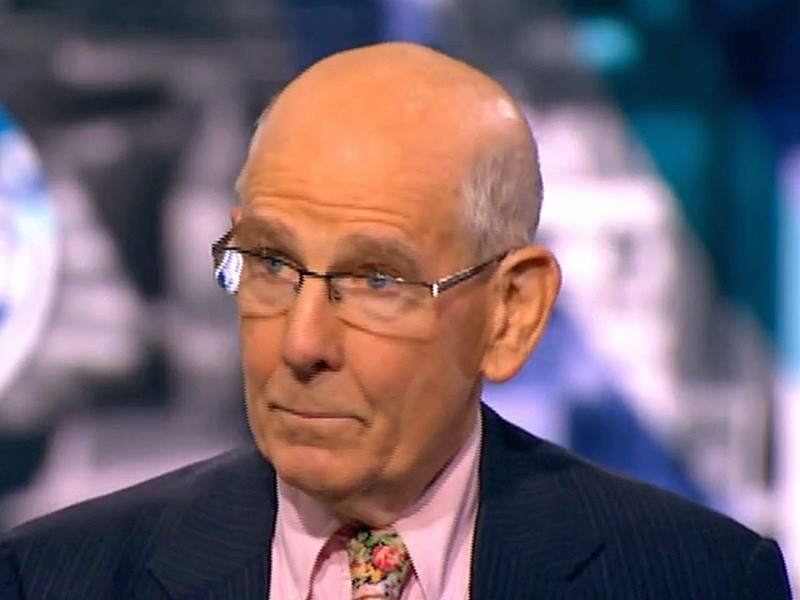IFA Magazine Independent Financial Advisor Burning Issues ETF Trends
Post on: 14 Июль, 2015 No Comment

City Editor Neil Martin kicks off our new Burning Issue feature with a frank round-up of industry opinions about where exchange traded funds are currently heading
These days, British advisers are becoming much more aware of the advantages that exchange traded products can offer over many traditional fund products. Their open-ended structures, combined with wafer-thin charges, real-time pricing and exemption from stamp duty have caught the publics eye too. ETFs are a convenient way of backing an entire sector in a single transaction.
But there are still many uncertainties still out there in the publics mind. Are synthetics really more risky than asset-backed funds? And just how passive is a higher-beta fund anyway, since it targets a particular outcome? How does the British view compare with America or continental Europe?
We asked Michael John Lytle. Chief Development Officer, Source ETF; Andrew Walsh. Head of ETF Sales UK at UBS Global Asset Management; Ben Thompson. Director of Marketing for ETPs, UK at Socit Gnrale; and Saima Parviez. Head of Marketing, Boost ETP for their feelings about how things are going on three major topics.
Pricing?
Saima Parviez, Boost
Agreed, one of the most powerful aspects of ETFs is their pricing. Pricing takes several forms of advantage, firstly low-cost TCO (total cost of ownership). This includes low expense ratios often as low as 0.1% and no entry or exit costs. This compares very favourably to mutual funds, especially active funds.Secondy, there is real time exchange trading and pricing. As ETFs trade in real time, you dont have towait until the end of the day or the next day to discover the price. With ETFs, you can trade as soon as you wish to.
Michael John Lytle, Source
Transparency is a key benefit of UCITS-compliant ETFs, but there is still some confusion in the market when it comes to comparing costs with other mutual funds. Once you sift through the differences in charging structures and terminology, you should find that ETFs are cheaper overall than comparative mutual funds.
Ben Thompson, Socit Gnrale
With multiple market participants around the world simultaneously pricing ETFs on the secondary market, advisers can take comfort in knowing that they can typically trade in or out of their ETF at its fair value.
Andrew Walsh, UBS
About seven months ago UBS ETFs slashed the prices of its ETFS across the board. As our assets under management have grown, we have been able to make efficiencies and therefore deliver price reductions. On a broader level, the ETF AuM in Europe has grown on average by 40% per annum for the past 10 years which in turn therefore, one would naturally expect to lead to greater efficiencies across the industry and further reductions in pricing.
Smart Beta?
Michael John Lytle, Source
This is arguably the most exciting area for investors who recognise the shortcomings of traditional market-cap weighted indices and want an alternative to the funds that follow them. Innovative strategies that focus instead on the various underlying factors that determine performance provide a smarter way to diversify risk and, in turn, improve risk-adjusted performance.
Ben Thompson, Socit Gnrale
Smart Beta ETFs enable advisers to gain market exposure with a specific objective like risk reduction, diversification or index enhancement. Or they can model their portfolio around specific factors such as volatility, size, value, momentum or quality income, all in an easily accessible, low cost and transparent vehicle.
Andrew Walsh, UBS
UBS ETFs have a number of Smart Beta strategies in the pipeline due to come to market later this year. We have seen a lot of client interest in Alternative Beta strategies as they look beyond traditional indices for various market exposures.
Saima Parviez, Boost

Smart beta really should be termed alternative beta. Smart implies that market cap weighted is dumb which it clearly isnt. However, some great strategies that fall into the smart beta bucket are resonating with investors. Wisdomtree [the asset manager which owns Boost] has been issuing smart beta ETFs since 2006; first dividend-weighted then earnings-weighted, to name a few. The history seems to suggest you can capture alpha overtime while employing these strategies.
Synthetic Versus Physical?
Andrew Walsh, UBS
At UBS, we are agnostic with regard to the question of synthetic versus physical ETFs. Although 75% of our ETFs are physically replicating there are some very good reasons for using synthetic (swap-based) strategies. For example, under UCITS rules the only way to get exposure to broad commodities ETFs is via synthetic replication. It is also about having the product range to match the demands of our clients. For example, we offer both a Physical and Synthetic MSCI World ETF and while some prefer the comfort of the physically replicating version, other investors feel a swap-based product better suits their needs.
Michael John Lytle, Source
We find that for many of our products, synthetic replication leads to more consistent tracking of the benchmark; however, we also use physical investing where the performance is clearly better. For us, the decision of which replication method to use generally comes down to which one offers the most effective and efficient way to achieve the products objectives.
Ben Thompson, Socit Gnrale
There is no right or wrong answer to the question physical or synthetic?. Both structures have their own specific risks and benefits, and it is often the Index that will determine the best structure to use. Not everyone realises that Synthetic ETFs do typically own physical assets too, and in many cases they are consistent with those of the Index. They simply use them for security rather than directly for performance.
Saima Parviez, Boost
I believe this was one of the most disruptive and needless debates to be had in the short history of ETFs. Both replication techniques are common in the wider asset management world and were not widely understood by investors. It was almost an emotive debate as well, as synthetic sounds bad and physical sounds safe and good. In my opinion, both have their place. Synthetic can often be more efficient and open more exposures and markets, such as emerging markets, commodities, short and leverage and so on, than physical can do.
I think for plain vanilla products, physical has won the battle for hearts but not necessarily minds. My view is the real issue is conflicts of interest inherent in the synthetic model, where the issuer is the same as the swap provider. This is typically the structure employed by European banks such as Lyxor and DB. In the US, that structure is not allowed by regulators. Europe will follow.














